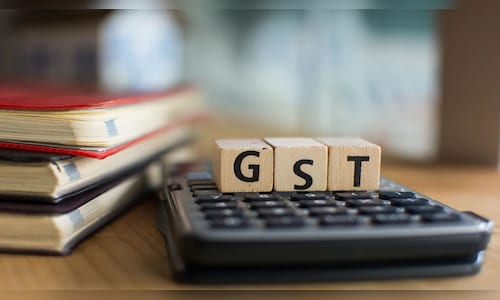As the government gears up to roll out the revised GST rates from September 22, Online Travel Agencies (OTAs) have raised concerns over how hotel bookings will be taxed under the new regime. According to sources, several OTAs have approached the Central Board of Indirect Taxes and Customs (CBIC) seeking urgent clarity and possible relief.
The bone of contention lies in the revised rate structure. Hotel rooms priced up to ₹7,500 a night will now attract 5 percent GST, but without input tax credit (ITC). Industry insiders say this change could disrupt the current business model of OTAs.
“Until now, hotels prepaid GST on bulk bookings, and that input credit could be passed on to consumers through the online portals. With ITC now withdrawn, costs for OTAs are bound to rise. Inevitably, this will push up tariffs for customers booking through these platforms,” sources told CNBC TV18 on condition of anonymity.
Industry players caution that the new structure undermines the principle of seamless credit – one of the cornerstones of the GST framework. The fallout, they warn, will be most severe for budget and mid-scale hotels, which form the backbone of online travel bookings.
“With the festive travel season just around the corner, this change couldn’t have come at a worse time. It creates uncertainty both for service providers and consumers,” said another source familiar with the matter.
Recently, The Federation of Hotel & Restaurant Associations of India (FHRAI), the apex body of the country’s hospitality industry, also picked on the similar issue and urged the GST Council to reconsider its latest move on hotel taxation, warning that the withdrawal of input tax credit (ITC) will severely hurt the sector’s financial health.
Earlier this month, the GST Council announced a rate cut on hotel rooms priced below ₹7,500 per night – from 12% to 5% – but withdrew ITC on such tariffs. FHRAI cautioned even as the measure is aimed at being consumer friendly, it undermines the fundamental principle of seamless credit under GST and will disproportionately impact budget and mid-scale hotels, which cater to the majority of domestic travellers.
FHRAI explained that under the earlier structure, hotels charged 12% GST with ITC benefits. Now, with a 5% GST rate but no ITC, hotels will have to absorb unrecoverable GST – typically 18% – on rentals, outsourced manpower, maintenance, utilities, and capital expenditure.
“For smaller and mid-segment hotels, this translates into huge cost overruns,” FHRAI noted. “A refurbishment project worth ₹1 crore will now attract an unrecoverable GST burden of ₹18 lakh, straining liquidity and long-term financial stability.”
Rahul Shekhar, Partner, Nangia Andersen LLP said that the hotel industry will have to absorb the “cost of ITC”, as it not available under the conditional rate reduction made by the government. “The same will impact the margins of the hotels, as there will be an additional cost of ITC to take care of and the small hotels may decide to pass it on to the end customer so as to avoid getting their books turn red,” he added.
Ikesh Nagpal, Lead-Indirect Taxes, AKM Global, a tax and consulting firm stated, “The recent changes on hotel tariffs and travel have unintentionally revived the cascading effect that GST was meant to eliminate especially at a time when the travel industry is still recovering from the impact of Covid. The removal of the ITC model is creating higher costs for hotels, online travel agencies, and intermediaries, leaving them with no option but to pass part of this burden to consumers. The pressure is particularly severe in the budget and mid-tier hospitality segment, where thin margins make pricing extremely sensitive. While the objective is simplification, the move risks increasing costs, disrupting growth, and undermining competitiveness in one of India’s most employment-intensive sectors.” Nagpal called for a more balanced approach to safeguard both affordability for travellers and the long-term sustainability of businesses.
Similarly, now OTAs are pressing the government for urgent intervention.
Whether the Centre chooses to tweak or roll back this provision remains to be seen. For now, all eyes are on when and what will be New Delhi’s next move.
Also Read: New GST regime to inject ₹2 lakh crore into economy, says Nirmala Sitharaman






